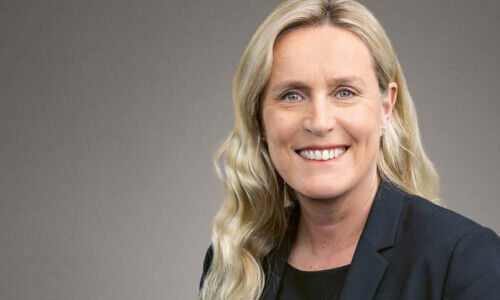Harvard professor and Credit Suisse board member Iris Bohnet, spoke to finews.com, about how companies can become more diverse.
As the workforce gradually returns to the office, behavioral economist Iris Bohnet is watching closely who will be reaping the benefits. «If it is primarily men who are returning, there are concerns that might translate to networking advantages and opportunities for promotions and better performance appraisals,» she said.
It is still too early to say whether working from home leads to more gender equality at work, as there «is not yet enough empirical evidence,» Bohnet told finews.com at Credit Suisse’s Global Women’s Financial Forum in Zurich on Tuesday, which discussed female leadership.
One thing that the evidence does show however is that «flexibility is good for gender equity.» With «flexibility,» Bohnet is referring to a situation where a child is sick or a parent wants to attend a kid's soccer game. Having employees and employers thinking about work more flexibly, in terms of «where it happens and when it happens, is a good thing,» she said.
Nudging Managers
Companies that focus on changing the tools and internal processes which can lead to discrimination are more likely to achieve diversity than those which attempt to change deep-rooted opinions and attitudes, Bohnet said. Although there's no single study that shows that diversity training works, it is still the favorite instrument used by companies, «but it's not working, it can't fix minds,» she added.
Rather than trying to get managers to build empathy for a minority group, Bohnet’s approach starts with the system and culture. «If we can fix the system, gender equity will happen,» she said.
In her advisory work on gender equality issues, in which she creates tools to promote diversity, Bohnet sees herself as a «behavioral designer,» best described as someone who thinks of the most suitable ways to present choices to people, while bearing in mind the impact the presentation has on their decision-making.
Such methods involve looking at how the language used in job advertisements can influence whether women or men apply for a position. Jobs with the word «assertive» are likely to attract more men, for example, she said. Another more heavy-handed method would be to link managers’ compensation to their efforts in promoting diversity within their team.
Defining Diverse
In the end, it all comes down to boards getting behind the issue. A recent endeavor in the UK showed that within ten years a concerted effort by the government, companies, academics, an NGO, and senior headhunters was able to bring the number of female board members of FTSE 100 companies to 39 percent from 12.5 percent, exceeding the initial goal of 25 percent.
«The crux is that the boards need to be interested,» Bohnet said
Undoubtedly, diversity isn’t limited to promoting white women. Society and companies acknowledge that everyone can have their own unique experiences of being marginalized or discriminated against based on their ethnic or socio-economic background, sexual orientation, or physical ability.
«Intersectionality is hugely important, (...) and has just become really obvious in the last five years,» Bohnet said.
Nowadays in the US, where Bohnet, who is Swiss resides, «it's almost inconceivable to do a study that just looks at men and women without controlling, for example, race,» she said, pointing to a recent study that showed that women of color, in particular, tended to give themselves harsher ratings compared with their white female counterparts.
Credit Suisse Board
For Bohnet the fact that Swiss boards have always been international means that they have always been diverse. «It is just that the definition of diversity has changed» over the years, she said.
Looking at her seat on Credit Suisse’s board of directors, which recently lifted its female participation to seven among the 13 members, she is «very excited that the bank is becoming more inclusive and more diverse.»
Bohnet has supported three of the bank’s executive teams from Brady Dougan, who headed the bank when she stepped onto the board in 2012, to Tidjane Thiam and Thomas Gottstein. Last year she took over the chair of Credit Suisse’s sustainability advisory committee, in addition to her role on the board’s compensation committee.




















